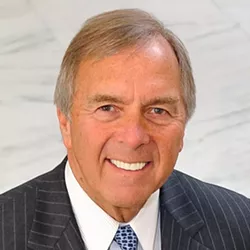Many pundits are signaling the end of the Trump presidency and the Ryan speakership because the repeal and replacement of Obamacare legislation was pulled without a vote. They're wrong. The Trump agenda will recover, and the Ryan speakership will remain. Those politically injured in the health care replacement efforts were the unyielding members of the Freedom Caucus, and the defeat was not good for America. President Trump and Speaker Ryan can affect future policy outcomes if they'll be inclusive.
The Washington Post crowed that with the defeat of the bill to repeal and replace Obamacare, perhaps a new right and left have emerged that can defy the speaker, suggesting that legislators are unafraid of the president. If true, then citizens should be anxious about the future, in spite of Trump's declaration that he intends to "drain the swamp." Draining the swamp should be the least of Trump's worries. Enacting American policies that restore confidence in political governance should be priority one.
Trump and Ryan should declare that the "Hastert Rule" has died. No longer should bills be approved only with a Republican majority. This may anger citizens on the self-righteous right, or members of the House Freedom Caucus, but it only perpetuates national division. Requiring fealty to Republican policies is demeaning to elected representatives. It perpetuates division and polarization.
I can only imagine the political pressure that House Democrats felt when it came time to vote on Obamacare in March 2010. I'm sure they heard, "If you don't vote 'Yes' on Obamacare, you'll destroy the president." Obamacare passed with no Republican votes. If passed, its replacement would have only had Republican votes.
Many Republicans and Democrats left Congress when congressional leaders became overbearing, not letting the process and judgment of elected officials unfold naturally, as intended by the Founders. They didn't intend that party leaders or the president's plans would usurp the collective judgment of elected officials in the legislative process. The Constitution is silent about such matters.
Americans have gotten used to the domination of party politics in the legislative arena, thus perpetuating polarization. Instead of doing what's right for America, Congress adopts policies that are good for the party in control, or the president who shares their party label.
Congress, the president and the press then dissect the dysfunction, instead of working on behalf of all Americans to make the United States better. It's increasingly disturbing that members spend too many hours each week raising money for re-election efforts instead of toiling to make America better.
Instead of fighting among themselves, members of Congress should spend more time explaining their actions to the public they represent. Trump, who came to the presidency in an unconventional way, should embrace the unconventional by reaching out to Democrats, seeking to persuade them that his intentions are honorable. Former President Eisenhower, extremely popular in his day, invited members of Congress to breakfast at the White House each week, just to get to know them. President Trump and Speaker Ryan should do the same, in their respective offices — no matter how distasteful — with the hope that some of the natural partisanship that exists today would dissipate. Many Americans want the two political parties to work together. Here's an opportunity for bipartisanship.
President Trump may soon realize that complaining about the past is a fool's errand — he should focus on how to make America better in the future. Certainly, undoing prior executive orders enacted unilaterally by President Obama is justified. So is reining in federal spending, as more than a billion dollars now goes to pay interest on the national debt each day.
Trump's focus on the excitement of space exploration has been underreported. Bringing America's tax and foreign policy conditions under control will be a major accomplishment. So will resolving America's immigration policies. Some of this will involve looking backward, but it should be approached with the future in mind — how to improve American lives.
With his approval rating hovering around 40 percent, Trump can restore American voter confidence by acting inclusively. His address to Congress was a good start — minimizing conflict and asserting an attitude of working together can bring national results — and possibly improved his approval among voters.
Trump appears to be serious about helping America. That's why exhibiting actions that don't further the seesaw of one-party rule can assuage the fears of all Americans. ♦

















